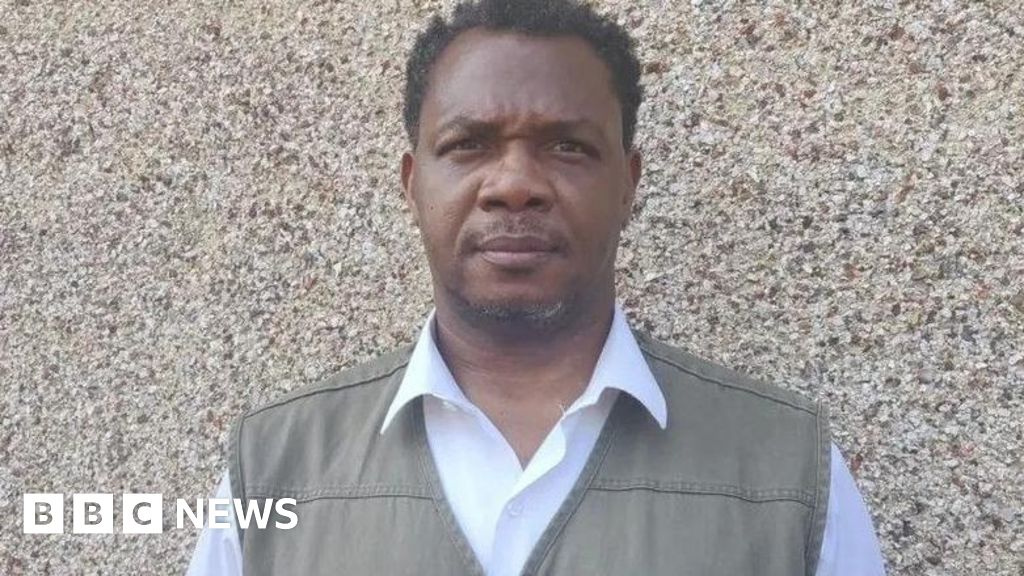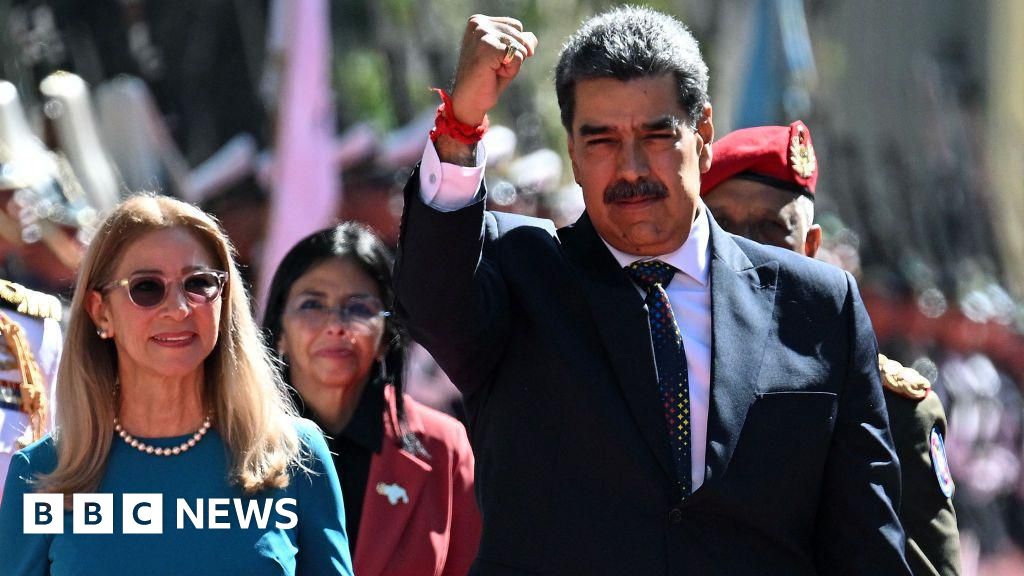The future of the Red Bull Formula 1 team is in the spotlight as their boss Christian Horner faces an internal hearing on Friday into a complaint of inappropriate behaviour.
The 50-year-old, who has led Red Bull Racing since its founding in 2005, will be quizzed by an independent lawyer on the complaint.
Parent company Red Bull Gmbh, based near Salzburg in Austria, said on Monday that it is taking the allegations against Horner "extremely seriously".
The team has not confirmed the nature of the complaint made against Horner but BBC Sport understands the claims relate to an allegation of inappropriate and controlling behaviour.
Horner has denied the allegations in a comment to Dutch newspaper De Telegraaf, external as well as inside an F1 Commission meeting of team bosses, governing body the FIA and commercial rights holders F1 earlier this week.
Horner's future has been the subject of intense speculation in the world of F1 in the days since the allegations emerged on Monday.
Many insiders who have discussed the situation with BBC Sport do not expect him to survive in his role.
However, Horner is a powerful and influential man, both inside Red Bull and within F1, and it remains to be seen whether this will lead to his downfall.
Whichever way the hearing on Friday goes, major questions now revolve around Red Bull.
If Horner is removed from his position, either by being sacked or resigning, sources say he would be replaced by an executive from the Austrian side of Red Bull.
Could that be Oliver Mintzlaff, former head of RB Leipzig football team and, since co-founder Dietrich Mateschitz's death in October 2022, chief executive officer of corporate projects with oversight of F1?
Horner has done an excellent job turning Red Bull into a winning machine, which last year produced the most dominant season in F1 history, taking victories in 21 of the 22 races among an avalanche of new records.
But to suggest he was singlehandedly responsible for their success would be to misunderstand Red Bull.
The team's main secret is chief technical officer Adrian Newey, to many minds the greatest design engineer F1 has ever seen.
The 65-year-old is a unique talent with a vision for aerodynamics - the key science behind success in F1 - like no-one else in the sport's history.
Red Bull have managed to set up a structure around Newey that maximises his creative talents while removing from him the areas in which he is either less interested or less skilled. Before that, he was famously bogged down by the complicated 'matrix' management structure imposed on him at his former team McLaren.
Success in F1 is never down to one person, but if you were forced to pick a single name as the decisive influence at Red Bull, it would without any question be Newey.
It is not a given that Newey would be discomforted by Horner's departure. They may share an extreme level of competitiveness but they are very different characters, Newey's diffident nature contrasting with Horner's front-foot aggression.
Nevertheless, the two are closely connected. It was former F1 driver David Coulthard who convinced Horner that Newey was the key to success when he joined Red Bull from McLaren for their debut season 19 years ago.
But once Coulthard had convinced Horner of the wisdom of the plan, Horner went all in and built the team around Newey, who was poached from McLaren on an initial salary of $10m.
There have been occasional frictions, including in the last year, when an interview Horner gave to a German publication in which he seemed to play down Newey's influence was said to be met internally with a fast, detailed kick-back from Newey.
But by and large they have made a strong team and if Horner leaves, the vultures in F1 will be circling.
Newey has come close to joining Ferrari at least twice, only to get cold feet at the key moment.
Ferrari might see the drama inside Red Bull as an opportunity to have another go at luring the chief technical officer.
Although the fact that many people in F1 believe - without proof - that Red Bull's technical director Pierre Wache, effectively Newey's number two, is already on his way to Italy in the not-too-distant future may complicate matters.
Aside from Newey's genius, another key to Red Bull's success is what a well drilled, efficient operation they are, both at the race track and the factory in Milton Keynes.
In both areas they make fast decisions, they act on them quickly, and they are usually right.
Trackside, the key figure on the operational side is their long-time sporting director Jonathan Wheatley. Insiders say he may have been eyeing a promotion if Red Bull decided to dispense with Horner. If he is passed over for an Austrian manager with no F1 experience, might he also feel it is time to look for pastures new?
There are also the men who make up the key engineering managerial team under Newey to consider.
Horner has spent time extolling the virtues of head of aerodynamics Enrico Balbo, lead performance engineer Ben Waterhouse and chief designer Craig Skinner. Trackside engineering director Paul Monaghan - who is close to Fernando Alonso, with whom he worked when the Spaniard won his two tiles with Renault in 2005-6 - is another major figure in Red Bull's success over the past 20 years.
F1 often lives up to the nickname former McLaren boss Ron Dennis once gave it - the Piranha Club.
And most of Red Bull's rivals will be looking to prosper from the unexpected unrest at a team that will enter the new season as hot favourite to win another world title, whether Horner is there or not.
 (1).png)
 11 months ago
18
11 months ago
18


















